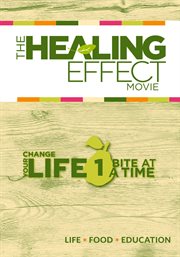Review by Booklist Review
Egan (Devoured, 2016), director of health and sustainability leadership for the Culinary Institute of America, divides this holistic guide to eating well and responsibly into four parts about, respectively, food that comes from the ground, from animals, from factories, and from restaurant kitchens. In those overarching categories, Egan organizes 60 essay-chapters that cover the wide and varied implications and consequences of what we choose to eat. In addition to discussing the food and nutrition topics readers will expect under each of these labels, Egan also offers, under the heading ground, essays on tap water and soil health; animals includes pieces on sustainable fishing and conscious meat consumption; factories addresses packaging; and restaurants discusses humane practices. Essays throughout help decode the labels and symbols on food packaging. This is an information-packed book, but the format makes it easy to browse, while text boxes, infographics, and illustrations by Iris Gottlieb add interest. Readers will find much to take away, including reminders that our consumer behavior can drive change and that what's good for us and good for the planet often align.
From Booklist, Copyright (c) American Library Association. Used with permission.
Review by Publisher's Weekly Review
Egan (Devoured: How What We Eat Defines Who We Are), a contributor to the New York Times's Well blog, offers a "radically practical" approach to eating both ethically and well in her insightful book. Using a three-question framework--asking whether something is good for oneself, for others, and for the planet--Egan presents thought-provoking ways to consider food choices, such as how much water a particular food item requires to produce. For instance, a handful of almonds require 23 gallons of water, while a stick of string cheese needs less. But cheese's carbon footprint is higher, and the nuts are healthier. Or one could opt for peanuts, which use less water than other nuts and are more affordable to boot. The section on seafood encompasses not only safety (via checking Seafoodwatch.org) but the effect on ocean habitats as well as fair wages for fishermen. Egan displays a talent for making the environmental complexities of food choices comprehensible, so that even discussions of food waste are intriguing. Setting a positive and encouraging tone throughout, she provides a thorough primer to combining health consciousness and environmental responsibility. Agent: Danielle Svetcov, Levine, Greenberg, Rostan Literary. (Mar.)
(c) Copyright PWxyz, LLC. All rights reserved
Review by Library Journal Review
Egan (Devoured: How We Eat Defines Who We Are) presents a voice of reason in the cacophony of advice about food and diet that surrounds us. The book is based in nutrition science and presents three questions to ask ourselves when choosing what to eat: Is it good for me? Is it good for others? Is it good for the planet? Chapters are comprised of short essays on a particular subject, organized into four sections: plants, animals, factories, and restaurants, with the order reflecting the priority that plants, animals, processed foods, and dining out should have in our diets. Egan's advice considers consumers' budgetary restrictions and reflects the impact our choices have on the environment. Topics include food waste, slavery in the seafood industry, reading food and nutrition labels, myths about protein, and explanations of artificial sweeteners. VERDICT Recommended for everyone who eats, particularly those who hope to improve their own health and the planet's by doing so.--Rachel Owens, Daytona State Coll. Lib., FL
(c) Copyright Library Journals LLC, a wholly owned subsidiary of Media Source, Inc. No redistribution permitted.

